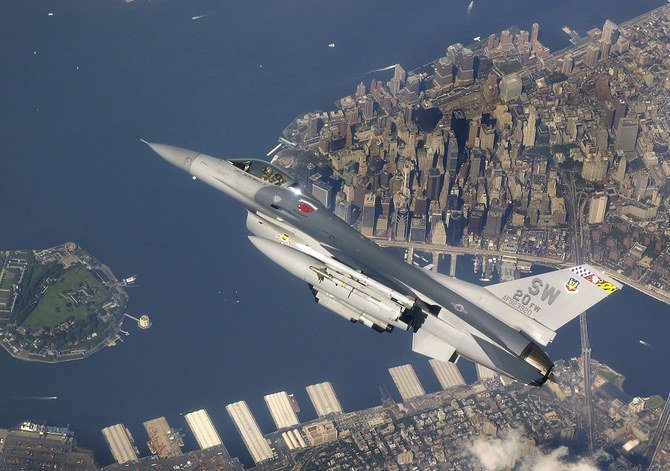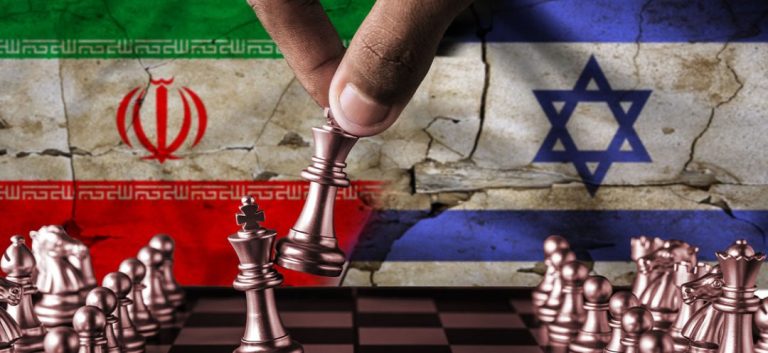Retreat from Qatar suggests US is preparing for war
Abdulrahman Al Rashed/Arab News/October 02/2019
هل يغادر الأميركيون قاعدة العديد الأميركية العسكرية في قطر أم أنهم يستعدون لاحتمالات الحرب
هل يغادر الأميركيون العديد
عبد الرحمن الراشد/الشرق الأوسط/02 تشرين الأول/2019
في ظل التهديدات والهجمات الإيرانية على مرافق النفط السعودية، وخطفهم السفن، وإسقاطهم طائرة درون أميركية قيمتها مائة مليون دولار، طبعا تتوقع أن تعزز الولايات المتحدة وجودها العسكري في الخليج؟
لا، الذي يبدو لنا عكس ذلك. تقول صحيفة الـ«واشنطن بوست» إنه في عملية تم التكتم عليها نُقل مركز قيادة العمليات الجوية، الذي يفترض أنه أهم مرفق في قاعدة العديد الأميركية في قطر، إلى ما وراء 11 ألف كيلومتر، إلى داخل الولايات المتحدة. وتقول المصادر الأميركية إنه إجراء احتياطي خاصة بعد نجاح الإيرانيين في اختراق الدفاعات الجوية وقصف منشآت بقيق وخريص السعودية مستخدمين صواريخ ودورنز تطير على ارتفاع منخفض جداً. في حين تقول الصحيفة إن الأميركيين يريدون نقل القيادة من قطر بشكل تدريجي إلى الولايات المتحدة، وهناك من يقول إنها عملية تقليص الوجود العسكري الأميركي في قطر بشكل تدريجي في وقت زاد البنتاغون من قواته في البحرين والإمارات والسعودية.
هل يفترض أن يقلق هذا التوجه السعودية وبقية دول الخليج، التي هي في حال حرب غير رسمية مع إيران، أم قطر التي بنت كل سياستها على أن تكون مقر القوات الأميركية في المنطقة واستثمرت مبالغ ضخمة لإغراء الأميركيين بالبقاء؟ فالتحسينات الأخيرة في القاعدة كلفت الحكومة القطرية نحو ملياري دولار. قطر تمارس كل نشاطاتها ضد دول المنطقة، مثل السعودية والبحرين والإمارات ومصر والأردن وغيرها؛ لأنها تعتقد أن الوجود الأميركي يحميها من عواقب أفعالها.
في الوقت الراهن الأهم للمنطقة هو دراسة احتمالية الانسحاب الأميركي بناء على رواية نقل العمليات خارج قطر. توجد مسألتان أساسيتان، على الأقل من وجهة نظري؛ أولاً: لا يمكن للأميركيين أن ينسحبوا من هذه المنطقة بالغة الأهمية استراتيجيا، فهي مفتاح الطاقة للعالم بما فيه دول منافسة لأميركا مثل الصين. ومَن يحكم مِن الدول الكبرى في هذه المنطقة، فسيتحكم عمليا في سوق الطاقة في العالم. ثانيا: تخفيض الوجود العسكري الأميركي سيقابله تزايد النشاطات العسكرية الإيرانية ومضاعفاته، بما فيها الإضرار بالمصالح الأميركية وحلفائها، إلا أن الانسحاب سيعني إفشال المقاطعة الاقتصادية التي تمثل محور سياسة واشنطن ضد إيران. قيام الأميركيين بالنقل التجريبي لقياداتهم من قطر يوحي، على الأرجح، بخلاف الإشاعات، بأن واشنطن تستعد لاحتمالات الحرب أكثر مما يبدو لنا. فالخشية من تدمير مركز القيادة دافع منطقي لعمل محاكاة له بقاعدة شو في الولايات المتحدة، وذلك في ضوء الهجمات الإيرانية الأخيرة. ولا يهم كثيرا ما تردده وسائل الإعلام الإيرانية من دعاية بأنها قادرة على تدمير القوة الأميركية في الخليج، فالحقيقة هي عكس ذلك. أما لماذا التردد الأميركي؟ فإنه يعكس المنطق السياسي هناك، واشنطن تفضل الضغط الاقتصادي على النظام الإيراني وإجباره على التراجع عوضا عن خوض حرب لها ما لها من تبعات سيئة.
قدرة أميركا على تدمير قدرات إيران حقيقية ومخيفة، لكن قد يكون هذا هو الحل الأخير.
Retreat from Qatar suggests US is preparing for war
Abdulrahman Al Rashed/Arab News/October 02/2019
Amid escalating Iranian threats and attacks targeting Saudi oil facilities, shipping, and a $110 million US drone, one would expect America to be strengthening its military presence in the Gulf.
But, no, quite the contrary. In an unannounced operation, which the Washington Post was invited to observe, the US this week transferred the command and control center of its air operations in the Middle East from its long-established base in Qatar to South Carolina. The transfer of the so-called US Air Force Combined Air and Space Operations Center from Al-Udeid Air Base in the Qatari desert to the Shaw Air Force Base amounts to a “dress rehearsal,” especially after the Iranians succeeded in penetrating air defenses and bombing the state-owned Saudi Aramco oil processing facilities at Abqaiq and Khurais using low-flying cruise missiles and drones.
Although the Washington Post pointed out that the US wants to gradually transfer command from Qatar to the US, some consider this move to be part of a gradual reduction of the US military presence in Qatar, at a time when the Pentagon has increased its deployments in Bahrain, the UAE and Saudi Arabia.
Who should regard this development with apprehension? Saudi Arabia and the rest of the Gulf nations, which are in the middle of an unofficial war with Iran, or Qatar, which has built all its policies on being the headquarters of the US forces in the region and has, to that end, invested huge sums to tempt the Americans to stay?
Doha has invested heavily in Al-Udeid in recent years, spending as much as $2 billion renovating the base. Qatar is confronting other countries in the region, such as Saudi Arabia, Bahrain, the UAE, Egypt, Jordan and others, only because it believes that the US military presence will protect it from the consequences of its actions.
Qatar has built all its policies on being the headquarters of the US forces in the region
For the time being, the most important thing for the region is to examine the possibility of a US withdrawal based on the narrative of the transfer of its center of operations from Qatar. There are two fundamental issues, at least from my point of view. The first is that the Americans cannot withdraw from this strategically important region, which is the energy key to the world, including US competitors like China. The major power that controls this region practically controls the world’s energy market. Secondly, a reduction in the US military presence will be offset by increased Iranian military activities, with repercussions including damage to American and allied interests. Moreover, a withdrawal would mean the failure of the economic boycott that is at the heart of the White House’s Iran policy.
The Americans’ experimental transfer of their air command and control operations from Qatar is likely to suggest that, contrary to rumors, Washington is preparing for the prospect of war. Against this backdrop, the US feels it is critical to fine-tune its air operations out of Al-Udeid, which it fears could be the first target in the event of conflict between the US and Iran. It matters little what the Iranian propaganda keeps claiming, which is that Iran is capable of destroying US power in the Gulf, since the truth is just the opposite.
But why then is Washington hesitating? Well, this reflects a political logic that finds it preferable to exercise economic pressure on the Iranian regime and force it to retreat, rather than wage a war. The US ability to destroy Iran’s capabilities is real and frightening, but this may be the last resort.
*Abdulrahman Al-Rashed is a veteran columnist. He is the former general manager of Al Arabiya news channel, and former editor-in-chief of Asharq Al-Awsat. Twitter: @aalrashed




















